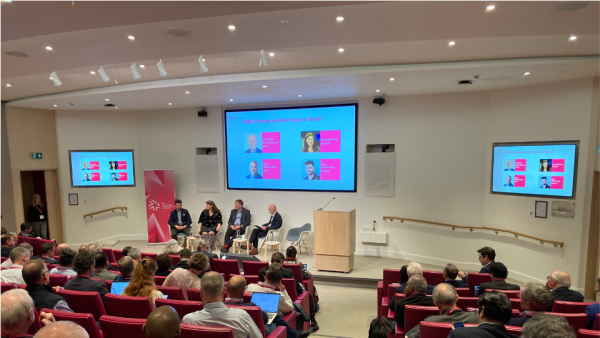Mobile UK publishes landmark report on the role of mobile connectivity in tackling the digital divide.

With 21% of UK adults now only accessing the internet using a smartphone¹, a major new report into digital exclusion by Mobile UK, the industry body for the UK’s Mobile Network Operators (MNOs), is highlighting the growing importance of mobile connectivity and the need for better Government policy.
Entitled ‘From Exclusion to Inclusion - How mobile connectivity can further narrow the digital divide’ this important report covers the many factors which contribute to digital exclusion in the UK. Statistics show that 6% of the nation’s households have no access to the internet² and 4.2 million adults have either never used the internet or have not used it in the past three months³.
Furthermore, 1.5 million UK households now access the internet at home via a mobile, not a broadband connection⁴. Evidence shows that mobile connectivity is directly linked to better life outcomes. People digitally excluded are, however, at risk of experience less effective healthcare, educational barriers, greater living expenses and lower earnings.
Mobile UK charts the progress made by the industry in providing quality mobile connections to as many people as possible.
Two-thirds of Britons now have 5G in their area and the Government’s recent Wireless Infrastructure Strategy sets out a target for standalone 5G coverage in all populated areas by 2030. In addition, the Shared Rural Network is working towards extending 4G coverage to 95% of the UK landmass by the end of 2025.
However, while the report emphasises the growing role of mobile connectivity, it also finds that digital exclusion cannot be addressed solely with better network provision. The many and varied factors which contribute to exclusion include no, or limited access, to the internet, a lack of skills and low confidence in accessing and safely using online services, as well as affordability, contributing to a growing divide of digital ‘haves’ and ‘have nots’.
The report makes five crucial recommendations for action to redress the balance:
1. Creating a new digital inclusion strategy – the Government’s last digital strategy was 2014 – there is currently no central policy ownership.
2. Enabling investment to ensure connectivity is kept affordable - the investment capability of the UK’s mobile operators is challenged by declining average revenue per user. The report calls for the Government to implement a framework to narrow the investment gap, incentivise activity and ensure a positive landscape for improving mobile infrastructure.
3. Promoting accessible and mobile-friendly websites as standard - 71% of smartphone users say it is more difficult to complete a form on a phone than a laptop⁵. Universal standards for UK public bodies and the private sector would remove accessibility barriers.
4. Using public services to promote digital inclusion - Public services both have significant contact points with the majority of digitally excluded people as well as a motivation to get them online so they can better access that public service.
5. Central funding for regional and dedicate Digital Champions - Senior roles with political support are needed to coordinate digital policy and work with industry to smooth the way for the deployment of digital infrastructure.
Commenting, Mobile UK Director of Policy and Communication, Gareth Elliott said:
“Mobile connectivity is already fundamental to our daily lives yet its importance in the debate about digital inclusion is less understood. In this report, we highlight the growing reliance on mobile, particularly among vulnerable people, the barriers people face, and call on the government to address these issues with clear policy direction by updating the national inclusion strategy to tackle the digital divide.”
To download the full report click here.
For more information on Mobile UK and the role of mobile connectivity visit Mobile UK’s website for further resources and information and subscribe to the ‘Connected’ newsletter.









